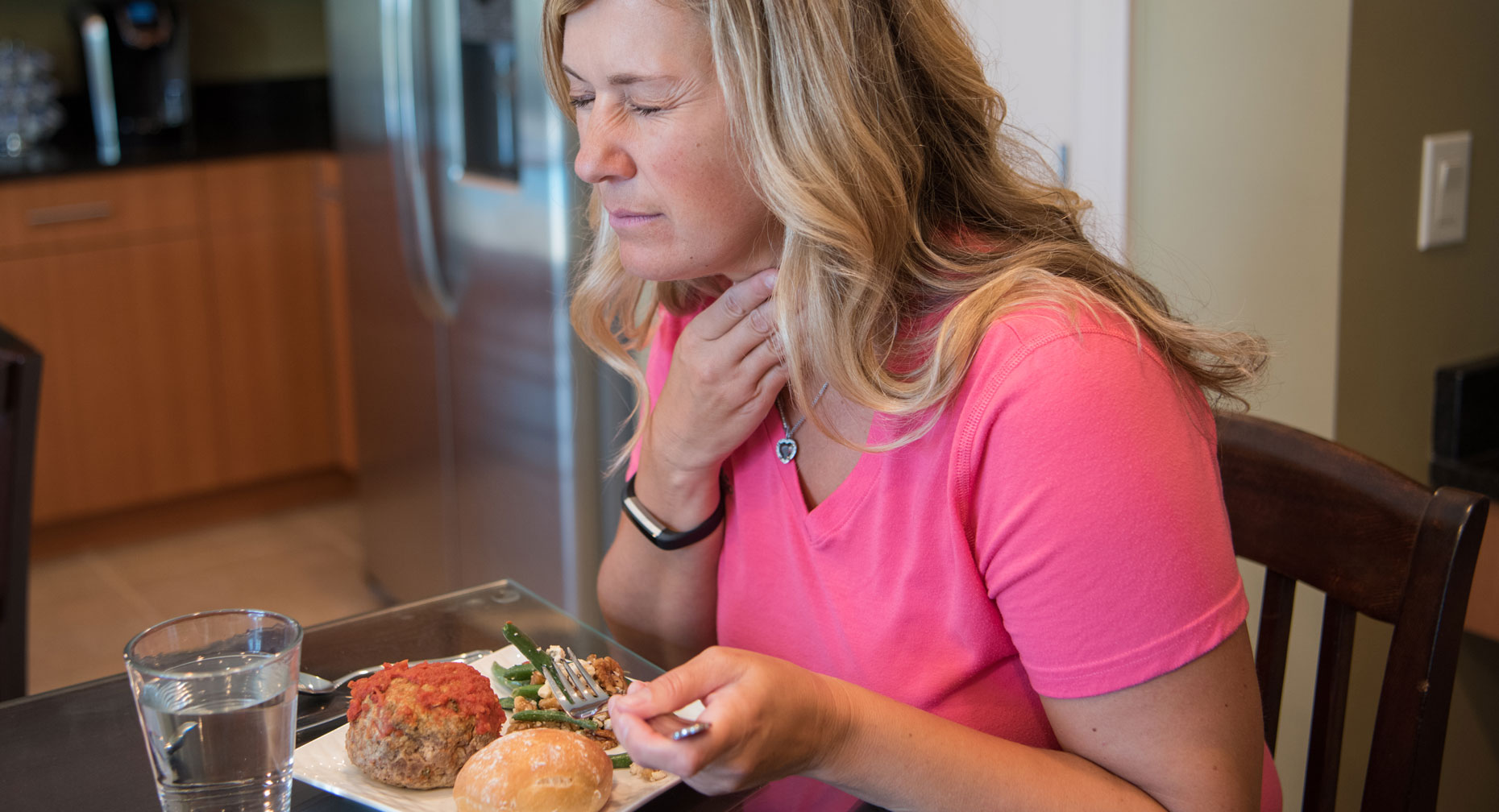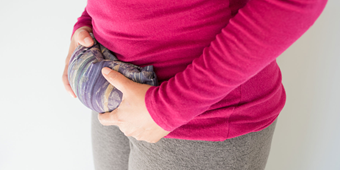Gulp! Do I Have a Thyroid Nodule?

Find Your Perfect Match
Answer a few questions and we'll provide you with a list of primary care providers that best fit your needs.
“Thyroid Nodules” may sound like the name of a rock band but it’s a real condition that may need your attention.
Your thyroid is a butterfly-shaped gland in your neck. You’ll find it in the center below your chin and toward the base of your neck. This important gland produces thyroid hormone, a chemical messenger for your body.
Sometimes, a group of thyroid cells starts to grow abnormally and form a lump within the thyroid. That lump is called a thyroid nodule.
Thyroid nodules are extremely common. In fact, by age 60, about one-half of all people have one! Happily, more than 90 percent of such nodules are benign (noncancerous). Still, a small proportion of thyroid nodules contain cancer cells.
Most thyroid cancers are curable and rarely cause life-threatening problems.
What Causes Thyroid Nodules?
Most often, the cause of nodules isn’t known. But they may be more common in people who’ve had medical radiation to the head or neck.
In rare cases, thyroid nodules are associated with:
- Hashimoto’s disease, an autoimmune disease that leads to hypothyroidism
- Thyroiditis, or chronic inflammation of your thyroid
- Thyroid cancer
- Iodine deficiency (rare in the U.S.)
Symptoms of Thyroid Nodules
In the vast majority of cases, thyroid nodules create no symptoms.
If the nodule gets large enough, you may develop:
- An enlarged thyroid gland, known as a goiter
- Pain at the base of your neck
- Swallowing difficulties
- Breathing problems
- A hoarse voice
If your thyroid nodule is producing excess thyroid hormones, you may develop symptoms of hyperthyroidism such as:
- Rapid, irregular heartbeat
- Unexplained weight loss
- Muscle weakness
- Trouble sleeping
- Nervousness
Diagnosing Thyroid Nodules

Occasionally, people themselves find thyroid nodules by noticing a lump in their neck. Often, thyroid nodules are discovered during a routine physical examination (always ask your healthcare provider to feel your thyroid gland) or through an imaging test done for another unrelated reason.
Once the nodule is identified, your health care provider will determine whether the rest of your thyroid is healthy. Initial lab tests may include measurement of thyroid hormone (thyroxine, or T4) and thyroid-stimulating hormone (TSH) in your blood.
But a physical exam or blood tests don’t show whether a thyroid nodule is cancerous. Your doctor may recommend a thyroid ultrasonography or fine needle biopsy to determine if the nodule is cancerous.
Treating Thyroid Nodules
If thyroid nodules contain a thyroid cancer, they should be removed surgically. Most thyroid cancers are curable and rarely cause life-threatening problems.
Surgery may still be recommended even for a nodule that is benign if it continues to grow or cause problems.
Find Your Perfect Match
Answer a few questions and we'll provide you with a list of primary care providers that best fit your needs.
Source: American Thyroid Association; Healthline




